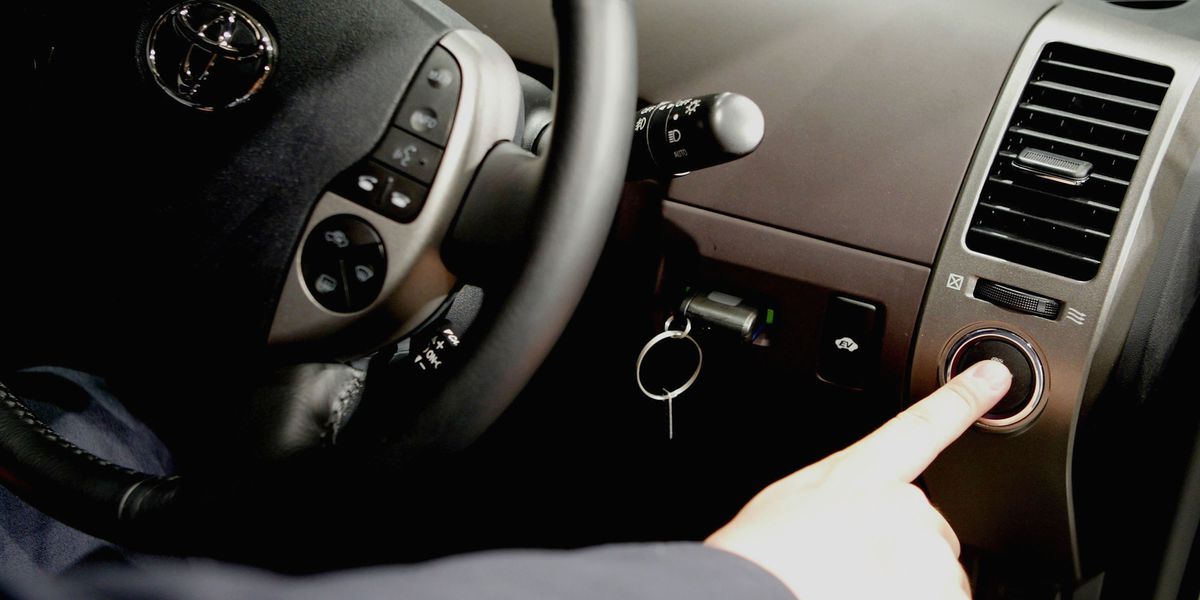Carbon Monoxide Deaths: Are Keyless Ignitions to Blame?
Posted By Darrigo & Diaz

Cars with keyless ignitions have a dangerous downside that has killed dozens of people
Cars with keyless ignitions have a dangerous downside. Sometimes, drivers don’t realize their cars are still on after parking, which can lead to carbon monoxide filling their garages and homes.
According to a New York Times report, dozens of people have died or been seriously injured by carbon monoxide emitted from keyless-ignition vehicles.
Cars with keyless ignitions use wireless key fobs, rather than conventional keys, that allow drivers to lock, unlock, or start their vehicles with a push of a button. The key fob has to be within a certain range of the car starter in order to work. But wireless key fobs create the opportunity for a driver to leave his or her car without turning it off. If a driver leaves a vehicle running in a garage, the vehicle could emit enough carbon monoxide — which doesn’t have a color or scent — to kill the driver if the driver’s home is connected to its garage.
What are automakers doing to improve the safety of keyless ignitions?
The issue here is how to avoid that, and, as with any tragedy, it’s complicated. The Times says that half of the carbon monoxide injuries and fatalities it identified were Toyota and Lexus models, even though Toyota uses an audible beeping warning. The Toyota Avalon does not feature the kind of automatic-shutoff function that other automakers employ, which happens after either a set time limit or through some combination of unbuckling the seatbelt, opening the driver’s door, and exiting the vehicle with the key. Toyota has said it will add an automatic shutoff feature on its 2020 models with keyless ignition.
Both SAE International and the National Highway Traffic Safety Administration (NHTSA) have proposed standards that would require more warnings or an automatic shutoff with keyless ignitions, but the auto industry, as always, is known to resist attempts at regulation that adds any cost or complexity.
What can drivers do to prevent injuries or death related to keyless ignition and carbon monoxide poisoning?
The evolving technology requires a mental shift: now that you don’t mechanically stick a key in the ignition and hear engine noise when the car is running, you need to pay closer attention to whether you’ve shut off the vehicle.
It’s clear we can’t trust automakers to protect us from every scenario, any more than we can trust the internet to protect our personal data. As cars become more appliance-like and consumers become less and less engaged with how cars work, the risk of problems like this only becomes more likely. It’s a reminder that the most important safety feature in a car, as always, is you.
Contact Darrigo & Diaz, Tampa personal injury lawyers today
Call 813-774-3341 for a free consultation
If you have been seriously injured in an accident in Tampa that was caused by the negligent or reckless actions of another person, business, or corporation, you are likely experiencing pain, anger, and confusion about what to do next. This is where the Tampa personal injury lawyers at Darrigo & Diaz can help.
For over two decades, Darrigo & Diaz has helped thousands of accident victims and their families in the greater Tampa Bay community. Led by Board Certified Civil Trial Attorney Nadine Diaz, our experienced Tampa personal injury lawyers provide trusted, personalized legal guidance, designed to get you results. We are an esteemed member of the Multi-Million Dollar Advocates Forum®, and we have over 250 5-Star Google Reviews attesting to our ability to meet and exceed client expectations.
We offer FREE, no-obligation consultations, and you do not have to pay for anything, unless we secure a financial settlement for you. Learn more about our services by calling our Tampa car crash attorneys today at 813-774-3341.
And, if you prefer to not come into our office, you don’t have to! As Tampa’s e-firm, we offer potential and existing clients the option to meet with us and hire us electronically. Call 813-774-3341 to learn more.

